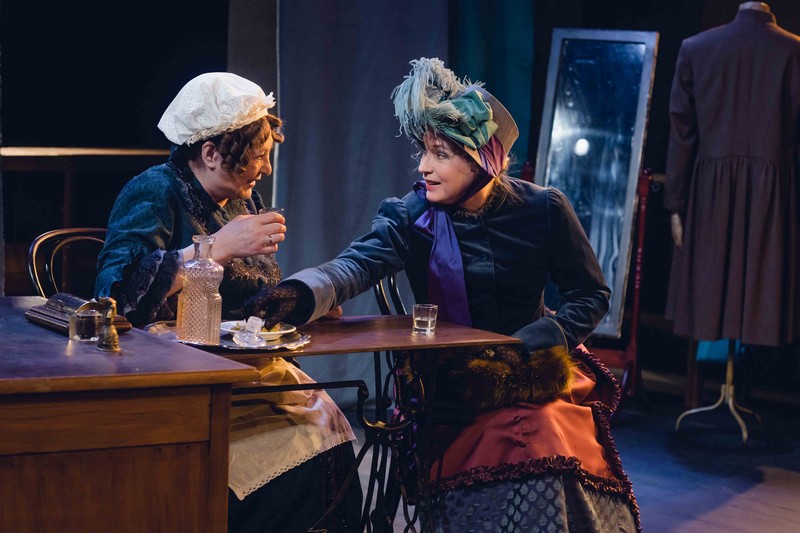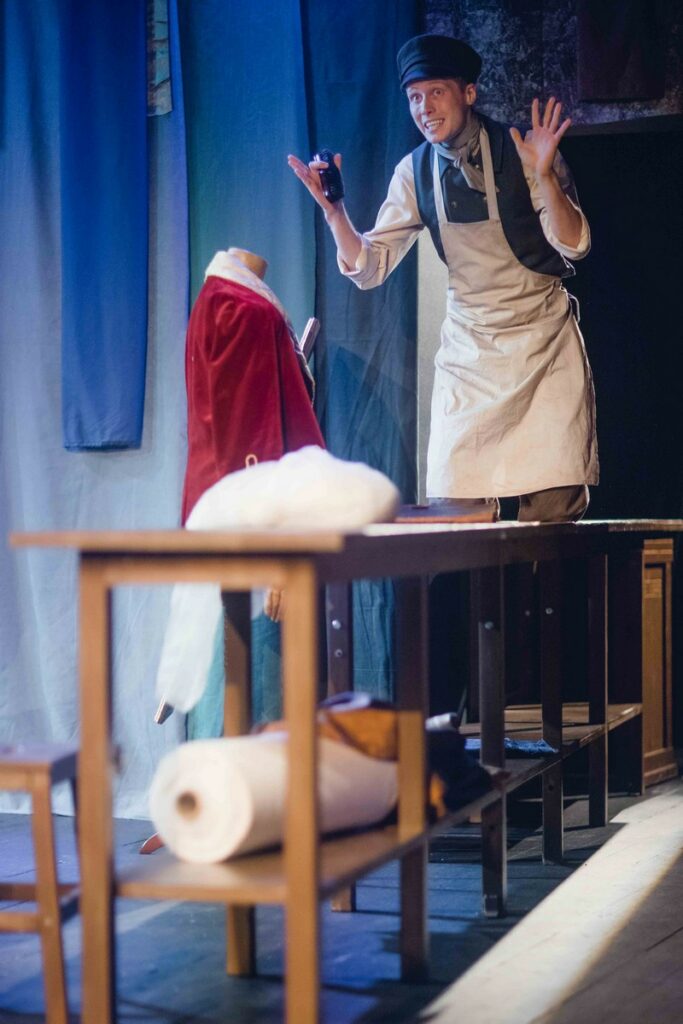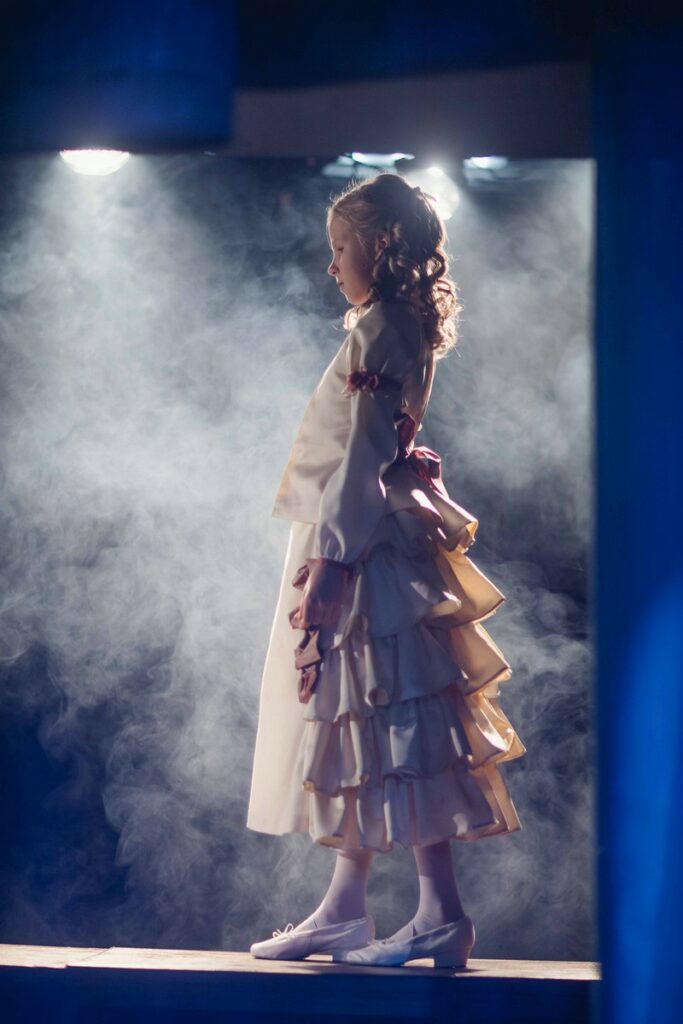“Bankrupt” Ostrovsky in the “Theater on Pokrovka”: life is breaking through the windows
[ad_1]
The Pokrovka Theater hosted the premiere of the play Bankrupt based on the play by A. N. Ostrovsky directed by Alexander Velmakin.

“Bankrupt” is one of the first titles of A. N. Ostrovsky’s play “We’ll Settle Our Own People”, which brought literary fame to the writer. Leo Tolstoy wrote about it this way: “All comedy is a miracle … Ostrovsky is not jokingly a brilliant dramatic writer.”
The relevance of Ostrovsky’s plays is rooted in real life: he spied on his heroes during his long years as a judge. The writer’s father insisted that Alexander first try himself as a judge, and he himself assigned his son to serve as a clerk in the Constituent Court. Actually, for Ostrovsky, the service was the place where he could observe and put the components of future plots into a literary piggy bank. His instructive stories – funny and sad – stem from real life, they clearly show a good knowledge of the complex movements of the human soul.
The heroes of Bankrupt in the Pokrovka Theater, written by the author more than a century and a half ago, are recognizable and close. Despite the fact that the turns of their speech are sometimes wonderful, and the costume is not sewn at all in the latest fashion.

Director Alexander Velmakin was able to succinctly and simply convey the original meaning laid down by the author, seasoning it with humor. Of the options for the names of the play, he chose the most capacious – “Bankrupt”, as giving what is happening a special subtext.
The merchant Samson Silych Bolshov (perfectly performed by Vladimir Shcherbakov) becomes bankrupt in every sense. A wealthy merchant who has entered into a deal with his conscience, turns out to be driven to madness and prison not by someone, but by “his own” people.

His daughter Lipa (Anna Serpeneva) grows into a complete fake (linden – she is a linden, Ostrovsky is extremely accurate in names). Lipochka does not know the value of money, but she is saturated with claims to the little one. Trying to goad her parents, the silly fidgety knick-knack gradually turns into a true daughter of her father. And he shows such a commercial acumen that daddy never dreamed of: “throws” both father and mother. Capricious Olympias sells herself to Lazar Elizarych Podkhalyuzin (Andrey Sumtsov) for a luxurious mansion in Karetny Ryad, for four dozen outfits made of silk and velvet, and for a team of expensive Oryol horses.
It is symbolic that the “stupid” (seemingly) clerk Lazar becomes a couple for the “stupid” Lipochka. The rich tyrant Samson, who decided to cheat creditors and declared himself bankrupt, gives this rogue the property for safekeeping, believing in assurances of boundless devotion. And daughter Lipochka, in a sense, is the “guarantor” of the deal.

Yes, but now the newlyweds do not intend to play according to the rules of their fathers and quickly put their unwanted “youngie” into a debt hole. “Their people” brought down the colossus – Samson, reckoning in full.
Comedy turns into drama before our eyes. Samson Silych asks the former clerk: “You know, Lazarus, Judas – after all, he also sold Christ for money … And what was it for him?”
Despite the fact that the tyrant-merchant himself is still a rogue, nevertheless, our sympathies turn out to be on his side. The opening scenes of Velmakin’s play, in which Samson gently plays patty with his adored little daughter, also work for this. The captivating innocence inherent in this strong nature, unable to discern the deceit of Judas Lazarus, also works for this. The dignity of the condemned merchant also works at the moment of farewell to his daughter who betrayed him and crying wife Agrafena Kondratievna (Tatiana Shvydkova).

Another character stands out – Sysy Psoich (Kirill Dobrovitsky), who lives according to the adage “they don’t beat the lying down.” Scams, turned by dishonest solicitor, often turn against him. Psovich has to survive, but he survives rather not thanks to, but in spite of everyone around.
The matchmaker Ustinya Naumovna, performed by Honored Artist of the Russian Federation Natalya Grebenkina, is also unusually good. The actress finds the exact touches for her heroine: habits – a fox, voice – a bird. With such Ustinya Naumovna, one must keep one’s ears open: if anything, they will slander the whole of Moscow, and even with three boxes they will invent.
Andrey Sumtsov’s podkhalyuzin is alarming, but not from the first appearance: the image is revealed gradually. At some point, the viewer realizes that this person is far from humility. Behind the façade of the “faithful to the house” clerk hides an even colder businessman than Samson Bolshov himself. Reverence and helpfulness are the backdrop for Lazar’s ambitious, well-hidden goals.
The actors of the “Theater on Pokrovka” are very convincing throughout the performance. Even the “boy” Tishka (Pavel Vasilkov). Looking at how he “warmed up” next to Lazar, the thought creeps in that soon Tishka will surpass his master and find himself in the same position with him that Lazar himself was with Samson.
The most amazing thing is that in this classic performance the viewer sees himself, today. He sees his own children. Or the growing children of their friends. He sees the characters coming onto the stage from the television news screens.

The veracity of the images is achieved through skill: Russian classics can be conveyed to the viewer only by bringing emotions as close as possible to us, the current ones. This is fully achieved. We also become interested in the actual conflict of fathers with children demanding quick money. And – to the no less urgent conflict of his majesty of the law with the “fathers”, cranking out dubious financial schemes. And to the conflict of a person with his own conscience, in the pursuit of money, choosing badly profitable ways.
Genuine life in this performance is breaking through our windows with spring force. Bankrupt is another worthy victory for the Pokrovka Theatre.
Elena Bulova.
Photo courtesy of the Pokrovka Theatre.
Photo by Diana Evseeva
[ad_2]
Source link






